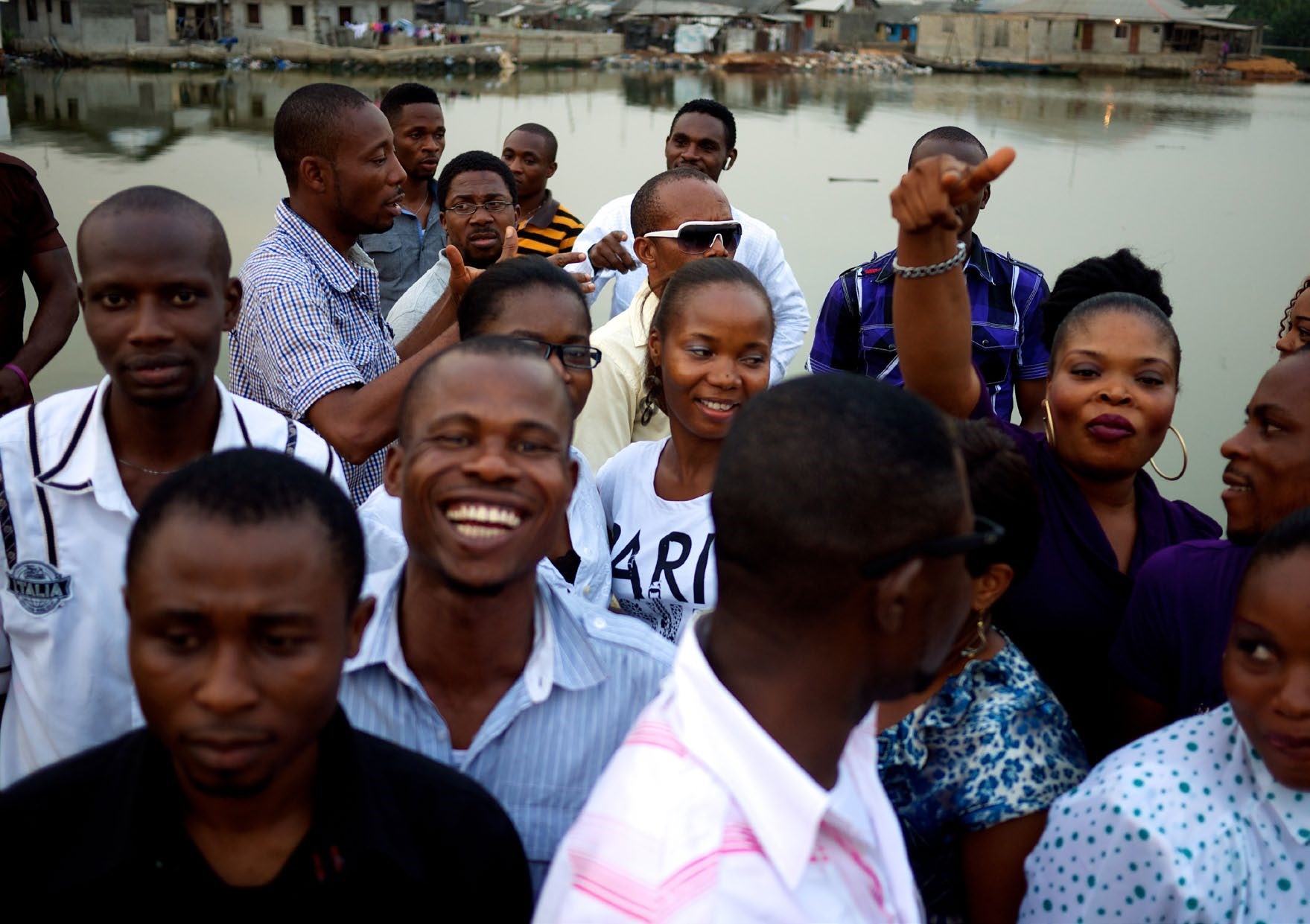OUR CITY: WHY WE WORK WHERE WE WORK
‘Chicoco’ means mud, the black, fibrous mud that people living in Port Harcourt’s waterfront communities cut from the mangroves and throw down on the river’s edge to reclaim land from the creeks. They build their homes on this mud.

‘Many voices make a city. Some people are trying to tear the city down. But we arre city builders and this is our rhythm, our right, our voice.’ - Favour, Okrika Waterfront
Okrika waterfront is one of over forty informal settlements that fringe the city. These settlements are home to over 480,000 people. They lack any municipal services. Residents are vulnerable to security force and gang violence. In 2009, all waterfront communities were declared for demolition. Tens of thousands lost their homes.
Based in Okrika waterfront, Chicoco Collective shares with young people from across Nigeria’s oil capital the skills and tools to tell their stories on film, on air and in court, charting their reality on maps and describing their visions in urban action plans.
Chicoco Radio is a youth-led community radio station that will reach 1.5 million people. Chicoco Studios will make the city’s marginalised waterfront communities a centre of musical creativity and free expression. Chicoco Cinema will put culturally excluded groups in the picture and Chicoco Maps will allow people to put themselves quite literally on the map.
These programmes were built as a response to the lack of voice felt by the city’s waterfront communities. They are part of the Human City Project, a community-led media, music, architecture, urban design and human rights initiative in Port Harcourt, Nigeria’s oil capital. Human City Project is coordinated by CMAP.
The studios and radio station will be housed in an architecturally ambitious amphibious building on the water’s edge: Chicoco Space. This will be the first building with long-standing legal tenure in any of the city’s waterfronts.
The design has won international awards. It will give local communities access to a radio station, recording studio, a media production suite, film library and cinema. Chicoco Space will be launched in two years.
For now the studios live in the Media Shed. The Shed is a music-making and community gathering-space built by young residents in Okrika waterfront. This is one of the project’s training hubs. Chicoco is actively involved in training local residents in all skills needed to run the planned multimedia hub, whose benefits include: opportunities to develop skills in media production; a platform for community voice; a stable structure which will solidify the legal rights of the wider area, in the long term helping to transform an informal settlement into a community with security of tenure and basic infrastructure; the means to broadcast to the city and reach audiences across the world; collaborations with other organisations and gainful employment in a community-owned social enterprise.

Media Shed: Alight at Night - The Shed is a music-making and community-gathering space built by young residents of the city’s waterfront slums. It is fully solar powered.
Local residents are also involved in our participatory mapping and planing programme. Hundreds of community members are involved in these community-building exercises, working to secure rights, permanence and voice for an area that currently have none of these things.
Music and movies have always been important to the project: Sessions in the Shed brings artists from around the world to share skills and inspire project members; Chicoco Cinema is a mobile inflatable cinema and thousands of people from across the city enjoyed stories and engaged in debate at our screenings.
We shall go on to develop renewable energy, sanitation, access to justice and green, safe public space programmes.
The Human City Project is about more than designing a building. It is about building a movement that empowers citizens to transform the city.
This blog is based on a presentation by Michael Uwemedimo from CMAPPING at LANDac 2018.

